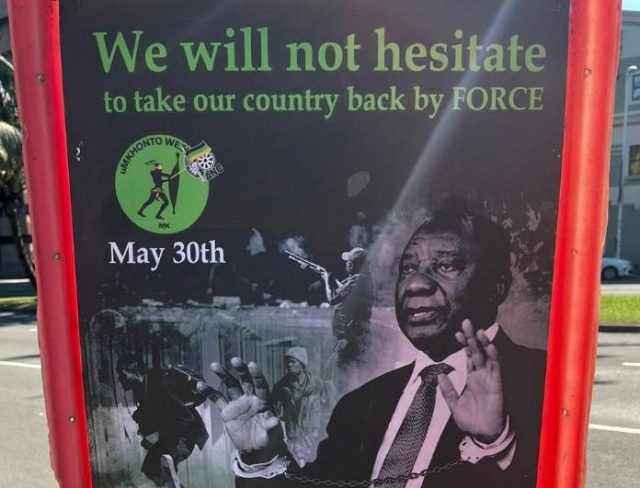
South Africa’s citizens stand firm against provocation
In recent days, Durban’s urban landscape has quietly shifted under the weight of political symbolism. Unmarked posters attributed to the MK party, historically linked with former President Jacob Zuma, have been sighted in numerous parts of the city. These materials hint at possible unrest surrounding the forthcoming elections, generating a whisper of anxiety among the populace.
Simultaneously, anonymous leaflets calling for civic engagement and protests have surfaced, compounding the city’s air of suspense. While the origin and intent behind these communications remain shrouded in ambiguity, their presence is undeniably palpable and provokes a mixture of responses.
Interestingly, the physical reactions to these events have been marked by restraint and nonviolence. A small group of about 15 individuals assembled, a march that concluded at the local MK party office. Their placards, carrying forthright messages about the ex-president, signified a deep-seated passion. This event unfolded quietly, with no media coverage, yet it stood as a testament to the ability of Durban’s citizens to channel their convictions into peaceful expressions.
The digital realm has reacted with less restraint, hosting a fervent exchange among hundreds. These virtual discussions splinter into factions, some decrying alleged corruption, others dismissing the unfolding events as mere political theatrics. Notably, online users have coined the term “Zumageddon” to describe the appearance of the MK posters, a label that highlights their serious implications.
It’s important to recognise that Durban is not alone in its experience. Similar sentiments echo across South Africa, suggesting a broader national undercurrent of dissatisfaction. This pattern calls for a balanced examination of the nation’s political dynamics and a quest for harmonious resolutions.
In essence, while the phenomenon remains under-reported, its existence raises questions about the nature of political expression and dissent in today’s South Africa. As tensions manifest in both physical and digital arenas, the imperative remains clear: societal unity and political stability must be pursued with judicious, unbiased vigor.
South Africa’s citizens stand firm against provocation



